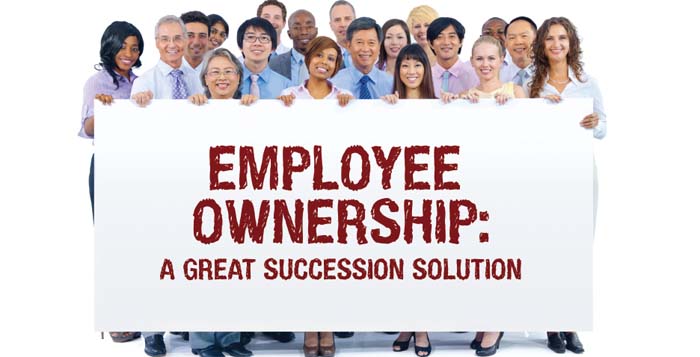You may well be facing one of the most difficult business decisions you have ever had to make. By Jacqui Mitchell, Baxi Partnership.
What to do with your business now that you are in the twilight of your career? Pass it on to the family, sell to competitors in the trade or sell it to a few key managers in the business? These are not your only options.

How would you like an exit strategy which would enable you to be in complete control of the whole process? You wouldn't need to share your financial data with your competitors and you could continue to work in your business for as long as you wanted. In addition, the values of the business would be maintained, it could continue operating from its current location and you wouldn't need to be concerned about the future for your loyal employees. All these benefits and more are potentially available if you choose to sell your business to your employees. This exit strategy can ensure a sustainable business and be a real catalyst for future growth.
Moving your company into employee ownership doesn't require your staff to have the funds available to buy your shares, although they may well invest some of their own money in the business. Instead the buyouts tend to be structured through a mixture of vendor finance and external borrowing. With vendor finance you would receive payments over a number of years from the future profits of the business. There is therefore a real incentive for the employees to work hard to increase profits to ensure that you are repaid as soon as possible. Alternatively, you may put in place a drip-down arrangement to sell your shares gradually over a period of time.
There are also various choices regarding the ownership model chosen. Do you go for a John Lewis model with all the shares held in a trust on behalf of the employees, or do you give your staff shares directly or enable them to purchase them, possibly through the use of a tax efficient share scheme? You may even decide to go for a mixed model which may be viewed as the best of both worlds combining individual share ownership with the stability of having a majority of the shares held in trust.
The benefits of employee ownership for the company include increased productivity and innovation and reduced staff turnover and absenteeism.
Financial participation alone is not enough to ensure the full benefits of employee ownership are enjoyed. Employees must genuinely think, feel and act like owners and this can only happen when information is shared and they are consulted on major decisions affecting the company. They must understand fully the rights and responsibilities of ownership and this change doesn't happen overnight.
Most advisers such as accountants and lawyers are not aware that this is a viable exit option for business owners therefore it is essential that you talk to experts if considering this route.
Jacqui Mitchell
Jacqui project manages the business transition process to ensure that companies derive the full benefits of employee ownership. She recognises that working with people to effect cultural change is just as important as the technical process. Jacqui originally qualified as a management accountant (ACMA) and founded a successful property business after completion of an MBA. She can therefore understand the concerns of business owners. After selling her business, Jacqui worked with a range of private sector organisations and social enterprises supporting them in strategic planning and financial forecasting.
Baxi Partnership has over 12 years' experience of providing advice and support to companies considering a transition to employee ownership. The company regularly holds free seminars for anyone wishing to find out more about employee ownership and also offer First Steps Workshops for business owners who are considering the feasibility of this option for their company. For more information about their events or the article, contact Jacqui Mitchell at jacqui.mitchell@baxipartnership.co.uk.
Comment
This is a recurring problem in the moving industry especially for family-owned companies. How have you solved it? Let us know on comment@themover.co.uk